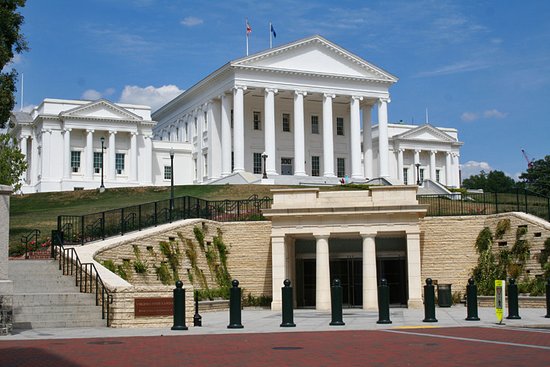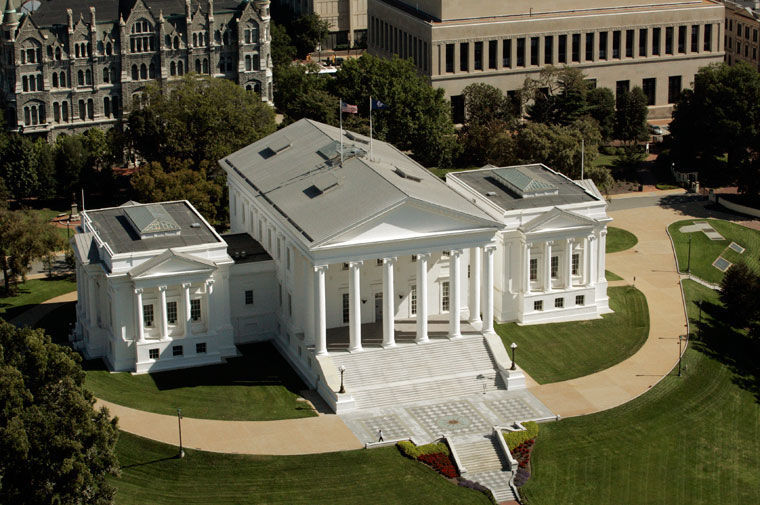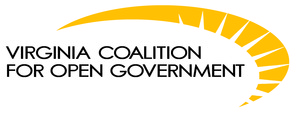|
General Assembly in full swing
 If it’s February, it can only mean one thing: the General Assembly is in full swing, and VCOG is at work monitoring bills that affect — for better or for worse — the public’s right to know. If it’s February, it can only mean one thing: the General Assembly is in full swing, and VCOG is at work monitoring bills that affect — for better or for worse — the public’s right to know.
The number of bills impacting the Freedom of Information Act and other access topics is right around the average of 50 to 60 each year.
Like last year, fewer of them create new exemptions; far more simply amend existing exemptions only with name changes, updated statutory references or the addition of a university that was left out of an exemption for other universities. Well over half suggest improvements to access.
VCOG didn’t support all of these latter proposals, not because they weren’t good ideas, but because, as with all proposed legislation, if the wording is not quite right, and it might have unintended consequences, it might not be best to pass the measures now. You can read about one such issue that VCOG — perhaps counterintuitively — opposed.
You can read a chart of VCOG’s positions on FOIA bills heard by the Senate FOIA subcommittee on the same page. Our position chart of House FOIA subcommittee bills can be found here.
Follow these and other access-related bills on VCOG’s annual legislative chart.
VCOG opposes bill exempting judiciary from FOIA
The most concerning bill to VCOG is SB727, a bill to exempt “the judiciary” completely from FOIA. The Senate Courts of Justice Committee advanced the bill on Thursday on a 10-5 vote. Senators Deeds, Edwards, Peake, Petersen and Sturtevant voted no. It’s now on the floor of the Senate.
The Supreme Court of Virginia’s administrative arm, the Office of Executive Secretary, insisted at the committee meeting that the bill was needed to clear up public confusion about the relationship between the courts and FOIA. Each chief justice has taken the position that the courts are not subject to FOIA, Kristi Wright of the OES said.
VCOG pointed out that the proposal wouldn’t affect access to court case records because the First Amendment guarantees a right of access to them and there are already statutes and rules in place for accessing them.
The proposal would, however, extend to all other records of the courts, from those about the courts’ performance in the administration of justice, to records about the courts as taxpayer-funded entities that spend money on employees, buying chairs, getting safety inspections, etc.
As originally drafted, the bill directed the Supreme Court to write rules of access to those records by Dec. 1 of this year. The OES issued a press release stating an intent to do so.
As VCOG pointed out, though, the rules should be in place before the judicial branch is removed from FOIA, not the other way around.
You can watch the entire hearing on the bill on the Senate’s video archive page. Just click on the video for “Courts of Justice Committee … for January 31” and fast forward to the 1:40:40 mark. The hearing lasted about 20 minutes and ended amid much confusion over how the bill would interact with another bill that would insure public access to the Supreme Court’s criminal court case database.
In fact, with the amendments to 727 adopted at the hearing, the bill would now exempt just the Supreme Court and OES, but would also remove the direction to the Supreme Court to write rules for public access by Dec. 1.
For another opinion opposing the bill, read “The judiciary’s really not that different,” a guest column on VCOG’s blog.
Contact your senator and ask him
or her to oppose SB727.
A sunny spot in Richmond
At the start of the Geneal Asembly session, good news greeted all citizens of Virginia in the form of House Rule 18c, part of of the House’s internal rules of operation.
“A recorded vote of members of a committee or subcommittee shall be taken and the name and number of those voting for, against, or abstaining shall be taken upon each measure using an electronic voting system” the rule states, reversing the rule of nearly a decade that allowed bills to be defeated by unattributed voice votes.
As detailed in three reports by the volunteer group Transparency Virginia, authored by VCOG’s Megan Rhyne, as many as 95% of the bills defeated each year were defeated without yeas and nays recorded by member. The rule seems to be working well, thanks in part to the wiring of the committee and subcommittee rooms with electronic voting systems, but also thanks to the diligence of the committee and subcommittee chairs.
Combined with the live-streamed committee meetings, it’s sunnier around the General Assembly, the logistics of having committee meetings in two buildings notwithstanding. For more on the challenges the building new set-up has presented this session, read this article.
FOIA & records management
VCOG’s Megan Rhyne joined forces with Glenn Smith, a records analyst at the Library of Virginia, to present another webinar on FOIA and records management. More than 270 government employees registered to attend online, while a few attended the presentation in-person.
The webinar was broadcast from Tidewater Community College, which donated time and equipment for a series of four webinars. This was the fourth of those webinars, and VCOG is working with Marian Anderfuren at TCC to possibly hold more at the school’s Chesapeake campus.
Many thanks to Glenn, too Marian, and to Jill and Timmy at TCC who make sure all the technical issues are taken care of.
Open government in the news
The Supreme Court of Virginia has agreed to hear a case brought forth on appeal from Marian M. Bragg, regarding alleged Freedom of Information Act violations by the Rappahannock County Board of Supervisors. Bragg argues the board discussed matters in closed session that it shouldn’t have. The lower court threw the case out because the court did not think her statement of good cause — an affidavit completed by one of the board members — was adequate. Meanwhile, the same board has twice been unable to get a quorum in order to vote on whether it will authorize legal counsel for another FOIA suit brought by Bragg.
The Portsmouth City Council had to take a revote to appoint a new member to the council to fill a vacant seat because only three council members voted for him. The city charter requires four votes for such an action.
The Town of Purcellville has been embroiled in controversy for weeks. In January, the town disclosed that it has spent at least $120,000 in dealing with the fallout from the scandal. In disclosing the amount, Mayor Kwasi Fraser told the audience at a public meeting, “We owe you folks a detailed analysis. . . . I just want to make sure that we are held accountable by presenting to you exactly where the money is going.”
Search warrants in two localities provided some details about an officer-involved shooting in Bassett on Dec. 5, but the Henry County Sheriff Lane Perry refused to release the names of the officers. Meanwhile, the Danville Police Department did release the name of the officer who fell asleep at the wheel of his car and crashed into a parked car. However, as to the name of the person who owned the parked car: “We wouldn’t release information like that,” a department spokesman said.
The City of Charlottesville, the Virginia State Police and the Secretary of Public Safety and Homeland Security have asked a judge to dismiss the FOIA lawsuit seeking police safety and operation plans for the Unite the Right rally on Aug. 12. The case is being brought by two freelance journalists and the Reporters Committee for Freedom of the Press.
A judge ruled against the chair of the Prince William County School Board in his lawsuit to get unfettered access to the emails of his predecessor on the board.
The former director of the Newport News/Williamsburg International Airport is suing the Peninsula Airport Commission and three current and former airport employees for defamation over text messages the employees exchanged that intimated that Spirito was shredding documents that the Virginia Department of Transportation would be looking at during its investigation of a $5 bank loan to People Express Airlines the commission agreed to guarantee.
Amazon announced a list of 20 localities that have made the cut for consideration of where the online retailer will build its second headquarters. Northern Virginia, which has potential sites in Fairfax, Arlington and Loudoun counties, was one of the 20. Arlington’s board chair spoke generally about the county’s proposal, but still declined to provide specifics. Prince William County has also declined to disclose its proposal even though the chair of the board of supervisors thinks “the chances of Prince William actually being the site are pretty minimal.”
A Bedford-area advocacy group claimed the county school system was blocking parents and students from commenting on the school’s Facebook page. In response to a media inquiry, the schools provided screen shots of their social media accounts to show that no one is currently blocked.
A Facebook group called Stafford Citizens for Smart Growth was found to be the source of a letter campaign to the county board of supervisors to oppose an otherwise-popular proposed medical clinic. Board members fielded more than 400 letters in seven days, prompting the board to issue a press release to address the letters’ complaints about the project. “Five hundred people sent us negative emails based upon non-factual propaganda generated by some other entity. I hope you understand this is a risk you run from getting your information and news from Facebook,” supervisor Jack Cavalier said.
The Richmond City Council had to cancel its Jan. 22 meeting when the sound system in the council meeting room began making high-pitched buzzing noises, preventing both the public and the television audience from hearing well.
A newly minted Culpeper County School Board member announced he’d like the board to consider adding a period of public invocation or prayer before its regular meetings, saying constituents wondered why the school board did not follow the same practice as the county.
As county and city boards across the state convened for their first meeting of the year, many considered changes to their meeting schedules, procedures and public comment periods. Shenandoah County voted 5-1 to approve rules to combine two separate comment periods into one and to move it to the start of the meeting. Pittsylvania County discussed bylaw changes that would, among other things, eliminate the current rule that speakers at a public meeting be residents of the county. Loudoun County voted to limit public speaking during its regular business meetings to 30 minutes in an effort to ditch late-night voting sessions. While the City of Charlottesville, still wrestling with fallout from the Aug. 12 Unite the Right rally, engaged with members of the public about whether civility during meetings should be a goal. Current rules include no cursing, no interrupting and no exceeding the three-minute speaking limit.
Henrico County’s deputy county manager has posted a sign on his door marking the number of days that have passed since he filed a federal FOIA request for records with the Department of Housing and Urban Development about a local apartment complex. As of January 23, it had been 84 days without receiving an answer or the document.
|


 If it’s February, it can only mean one thing: the General Assembly is in full swing, and VCOG is at work monitoring bills that affect — for better or for worse — the public’s right to know.
If it’s February, it can only mean one thing: the General Assembly is in full swing, and VCOG is at work monitoring bills that affect — for better or for worse — the public’s right to know.